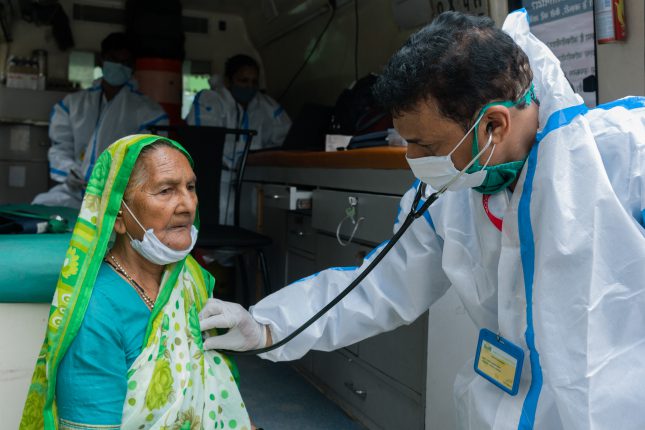Not everyone in India is equal in terms of wealth and money. The fortunate ones are able to provide medical treatment to their loved ones. They do it either by opting for premium medical insurance or by having saved enough for any medical emergency. But there is one or another NGO for medical financial help available in India. Let’s learn about them and more!
The challenge is for those whose incomes barely cover the basic cost of living such as food and shelter. It is for them that medical treatments become a stressful time. But all is not dreary for them!
Help and hope for them are provided by nonprofits that offer free and immediate financial assistance to those in need.
Governmental Support
Both the Union and State governments provide medical financial help to the disadvantaged communities who need it the most. Some of the leading initiatives are–
Prime Minister’s National Relief Fund (PMNRF)
India’s first PM Jawaharlal Nehru started the Prime Minister’s National Relief Fund (PMNRF) in 1948. The idea was to help Indian families who are impacted by natural disasters such as cyclones, floods, and earthquakes as well as those people who are victims of riots, major accidents and other such extraordinary calamities.
Today the fund finds use to provide financial assistance to marginalised communities who are ailing from major illnesses but are unable to afford medical treatment and care. Selected hospitals that form part of this programme are empanelled to provide medical treatment to the needy at no cost.
Rashtriya Arogya Nidhi (RAN)
The RAN was set up in 1997 to provide financial assistance to patients living below the poverty line. Those suffering from major life-threatening diseases related to heart, liver, kidney and cancer cases, etc., are eligible to receive medical treatment at any of the super specialty government hospitals/institutes as well private hospitals mandated under this scheme to treat these patients at no cost.
Grants amounting to INR 50 lakhs can be disbursed towards healthcare and medicines for those who need it the most. Moreover, 10% of beds are reserved for poor patients in all private hospitals that can be availed for treatment.
This is very useful for those who are suffering from life-threatening diseases, where saving time is key. This ready access to funds ensures minimum delay in identifying hospitals and brings promptness in the surgeries and treatments involved. This way RAN enables saving thousands of lives, bringing immense relief to marginalised communities. Communities who have been victims of death because of not receiving timely medical intervention.
Is This Enough?
But it’s not enough! For a country where a majority of its people are living below the poverty line, access to affordable and immediate medical treatment remains a pipe dream. This is where several Non-Governmental Organisations (NGOs) come into play to bridge this gap and provide timely medical care.
NGO for Medical Financial Help
With the help of technology, institutions have come up with innovative ways to address the challenges faced by disadvantaged people and marginalised communities living across the country in far-flung and remote areas.
The leading lights in this landscape– the nonprofits who are committed and completely focused on ensuring medical treatment and financial help for the most needy are–
Doctors for You
Swasth Foundation
Foundation for Mother and Child Health
CanKids KidsCan
Aarogya Seva Foundation
And lastly us, Smile Foundation
So, there is always one or another NGO for medical financial help in our country.
Even celebrities passionately involve themselves in philanthropic work now and contribute towards alleviating this issue and providing financial relief to the needy. The pandemic has seen several leading stars pledge to support and resources towards medical treatments for all those marginalised communities who were mostly labour and daily wage earners, who lost their jobs due to COVID-19. This section of society has suffered the most.
So, how is the healthcare system of India made better?
Corporate CSR
Under the Companies Act 2013, corporations have to set aside a minimum of 2% of their net profits towards social causes and welfare programmes. These causes can vary from girl child education to eradicating hunger to providing financial aid to the poorer sections of society. As part of this mandate, corporates can disburse funds earmarked for CSR to charitable hospitals, so that they can provide aid at the community level.
Crowdfunding
Crowdfunding has tremendous potential to reach out to millions of people at one time. Through the reach of the internet, you can ask people all over the world to support your cause. One can start a campaign, share details of their medical condition and make a universal appeal for financial aid.
The power of crowdfunding allows the message to be heard across the globe, which opens funding from companies as well as single individual donors who are keen to offer help and can afford it as well.
With proactive involvement from all sides, we as a society are coming forward to help the less fortunate. We are seeing a shift in our health numbers. Today more and more people are covered by some form of financial assistance for their medical needs. This forms a good base to build on some fundamentals that will further enhance community-based health initiatives.
So while the country works on increasing local infrastructure and strengthening its national health programs, these private partners are contributing in ways that benefit those who struggle for financial aid for themselves and their families.
Smile Foundation: An NGO for Medical Financial Help
Smile Foundation is trying to make healthcare available for people who live in remote areas who have to travel long distances and need it the most. Why? Because we are not exaggerating when we say Health Cannot Wait!



